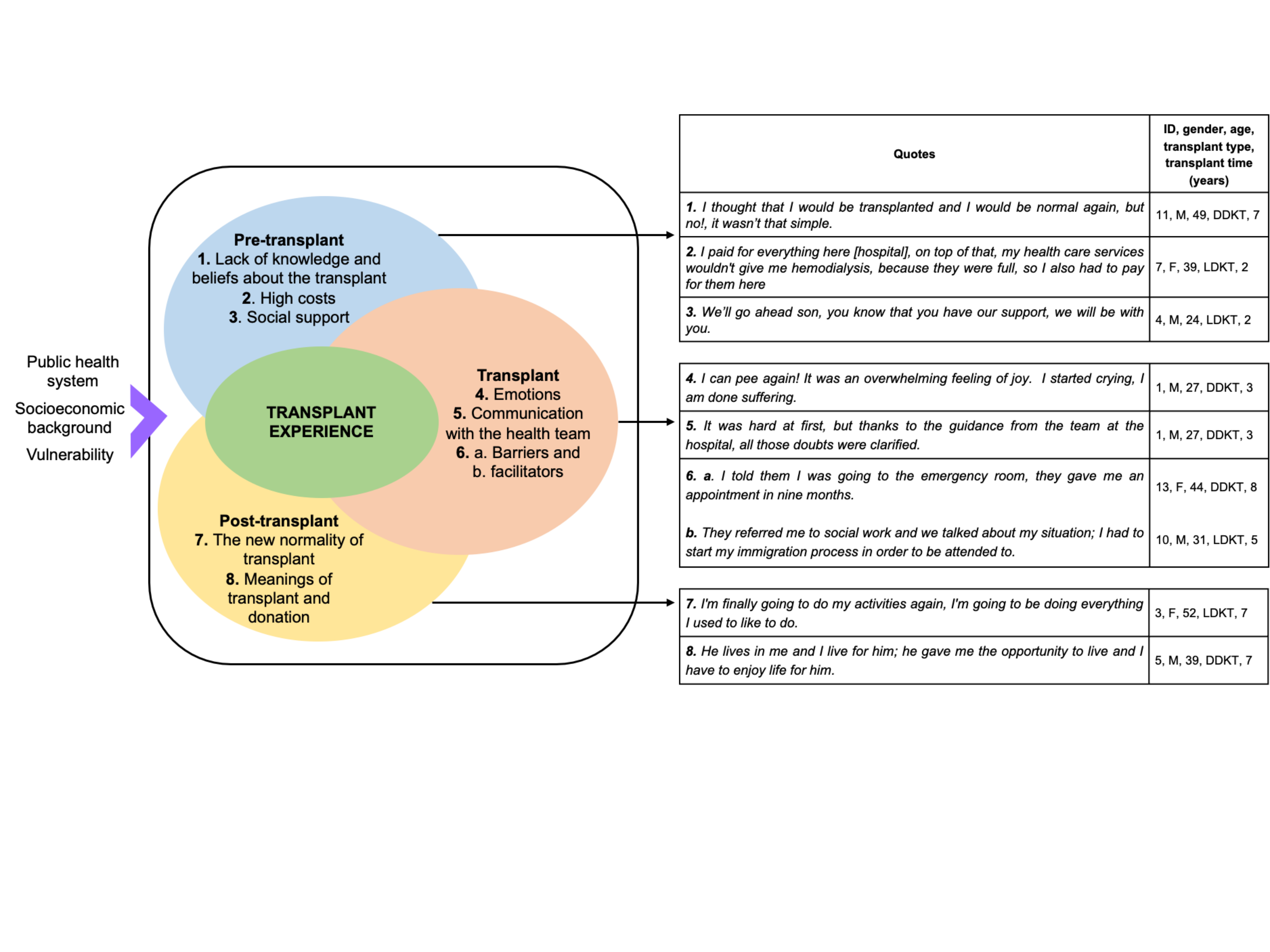
Sociocultural experiences and meanings of kidney transplant in Mexican patients: A qualitative study
Carolina Espinosa-Escobar1, Ingris Peláez-Ballestas2, Aczel Sánchez-Cedillo3, Tirsa Colmenares-Roa4.
1Department of Social Work and Public Relations, Hospital General de México Dr. Eduardo Liceaga, Mexico City, , Mexico; 2Rheumatology Unit, Hospital General de México Dr. Eduardo Liceaga, Mexico City, , Mexico; 3Organ Donation and Transplantation Unit, Hospital General de México Dr. Eduardo Liceaga, Mexico City, , Mexico; 4Department of Research, Hospital General de México Dr. Eduardo Liceaga, Mexico City, , Mexico
Introduction: Although transplantation offers a better chance to improve quality of life, it poses many challenges for lower-middle income patients. The purpose of this study was to analyze these experiences among patients treated in a Mexican public hospital.
Methods: A qualitative descriptive study of kidney transplant patients was conducted using semi-structured interviews following an interview guide, which were audio-recorded and transcribed verbatim. Thematic analysis was carried out to categorize the information using Atlas.ti software; the interpretive-critical perspective of medical anthropology was used for the findings.
Results: This study included 13 patients with an average age of 36 years, 6 (46.1%) women, 10 (76.9%) singles, an average education of 13 years, 9 (69.2%) with informal jobs, and 13 (100%) with medium-low socioeconomic level. Eight main themes were identified and distributed in the 3 phases of the transplant process: Pre-transplant: 1. Lack of knowledge and beliefs about the transplant; 2. High costs, 3. Social support. Transplant: 4. Emotions, 5. Communication with the health team, 6. Barriers and facilitators. Post-transplant: 7. The new normality of transplant: body, family, and work, 8. Meanings of transplant and donation.
Conclusions: Transplantation is an alternative to overcome the social suffering caused by chronic kidney disease; however, health vulnerability remains after the procedure. Social and institutional support alleviates the socio-economic and emotional burden. Transplantation provides a state of comprehensive well-being, although there is uncertainty due to the return to personal and social suffering in the event of a possible loss of the graft.

[1] Qualitative Research
[2] Health Vulnerability
[3] KT Patients
[4] Mexico
[5] Patient Experiences
[6] Medical Anthropology Approach
[7] Hospital Setting
